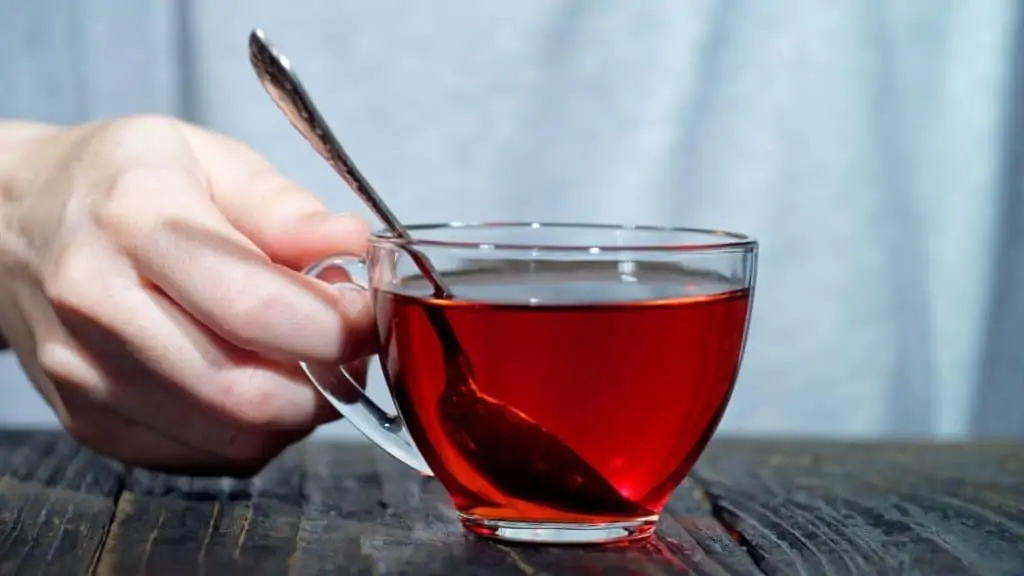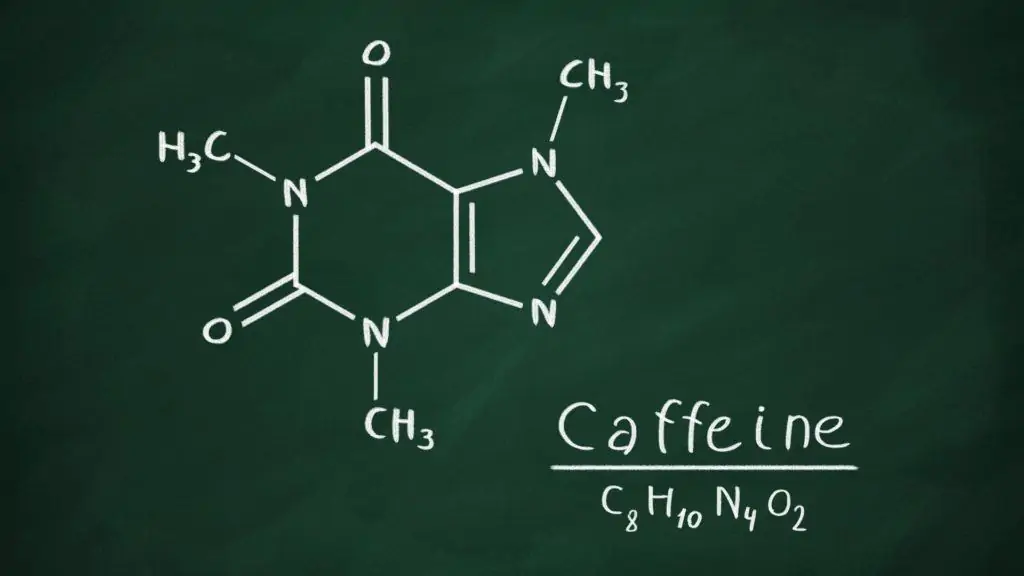Coffee made quite a name for itself back in the 17th and 18th centuries.
While tea may be the seasoned beverage of the two, coffee reigns supreme for so many households.
Is it all because of the caffeine content, or are there other things to consider?
Let’s brew up a battle analyzing the caffeine in tea vs coffee.
How Much Caffeine Is in Coffee and Tea?
There are several things to consider when measuring the caffeine in tea vs. coffee.
Both coffee and tea hold an impressive amount of caffeine, depending on the type and how you produce it.
Using Mayo Clinic, take a look at the overall caffeine content in an average cup of these two caffeinated beverages.
It’ll be beneficial to understand the caffeine levels in each.
How Much Caffeine Is in Coffee?
There are a few kinds of coffee to keep in mind for our discussion.
Brewed coffee, instant coffee, and espresso are the most common versions of coffee enjoyed by the average consumer.
For this analysis, we’ll omit decaffeinated coffee, which doesn’t reach a caffeine level beyond two milligrams in an eight-ounce brew anyway.
The caffeine content in a cup of coffee typically sits at 96 milligrams in an eight-ounce cup.
If you prefer a compact, one-ounce cup of espresso, the caffeine level is closer to 64 milligrams.
For those of you who like the distinct taste offered by instant coffee, an eight-ounce cup of instant caffeinated coffee possesses 62 milligrams of caffeine.
How Much Caffeine Is in Tea?
If you lean toward tea over coffee, you know there’s a wider variety.
However, only two types of tea hold a significant amount of caffeine worth mentioning.
Black and green tea pack the most brutal punches out of any other caffeinated teas.
An eight-ounce cup of brewed black tea offers 47 milligrams of caffeine.
Green tea is frequently the healthier option for caffeine consumption.
If green tea is your go-to, then an eight-ounce cup of it holds 28 milligrams of caffeine.
Eight ounces of bottled tea that is purchasable from your local grocery will usually provide around 19-20 milligrams of caffeine.
More robust teas such as matcha green tea and mate are even more caffeinated than black tea.
Oolong tea will generally serve as an excellent in-between for black and green tea.
Caffeine In Tea Vs Coffee: Which Has More?
A simple cup of coffee isn’t always the ideal option, especially if you’re looking for more than just a quick pick-me-up.
In essence, coffee technically has more caffeine than tea once you finish brewing your regular cup.
Contrarily, there are many other factors to weigh in.
Tea Leaves Have More Caffeine Than Coffee Beans
The leaves used in various cups of tea initially hold more caffeine than a typical coffee bean.
You can also further manipulate coffee beans to remove the caffeine before brewing.
Have you ever heard of light, medium, and dark roast?
You might think that dark roast offers the most considerable caffeine content, but it just tastes more robust.
Light roasts contain the most caffeine.
Suppose you’re wondering why it comes down to simple science.
Roasting a coffee bean will inevitably remove a substantial amount of caffeine in it.
The longer you roast the bean, the more caffeine dissolves from it.
Ultimately, it depends on what type of coffee beans you plan to utilize in your brew.
A dark roasted bean will not carry the same amount of caffeine as a tea leaf.
Brewed Coffee Has More Caffeine Than Steeped Tea
Most coffee drinkers favor a hot cup over a cold brew.
Both kinds are much more caffeinated than a steeped teabag.
Steeping tea removes the caffeine, given the water’s heat gradually burns it away.
Moreover, coffee beans hold their caffeine content a bit better, even in a piping hot mug.
The Takeaway: Caffeine Levels Vary Quite a Lot
Overall, don’t discount all the varying types offered when discussing the levels of caffeine in tea vs. coffee.
The brew, the kind of tea leaf or coffee bean, the beverage-making device used, and so much more go into how much caffeine your refreshment holds.
Furthermore, many of us drink coffee or tea for more than just the caffeine.
The taste and sensation are integral parts of what makes each version appealing to different groups of people.
If you find yourself only desiring coffee or tea for the caffeine levels, consider the risks and benefits of drinking each before making your final decision.
Which One Should You Choose in the Morning?
If waking up in the morning feels cumbersome, should you reach for coffee or tea?
Often, people who need a speedy boost first thing in the morning should choose coffee.
Coffee is an effective option when you’re getting ready to fulfill a busy task list.
Tea may keep you awake, but it will also relax you rather than push you to be productive.
Adversely, if you start drinking coffee too late in the morning, it could cause you to crash before nightfall.
Knowing how your body functions is crucial so you don’t find yourself consuming coffee behind schedule.
Should You Drink either of These When You’re Sick With a Cough or Cold?
Whether you’re suffering from a 24-hour bug or a two-week-long cold, tea is going to be the best choice.
Green and white tea are not only great sources of energy.
These herbal teas are packed with antioxidants that further help you fight off long-term illnesses.
Acting similar to what fruits and vegetables do for our body, it makes sense why tea is the hot drink recommended for aid.
Coffee and Tea Dehydrate Us
In most cases, reaching for a hot beverage in an attempt to quench your thirst is not ideal.
If you’re picking a hot drink to keep yourself hydrated, it should be tea.
Tea possesses more H2O and will rejuvenate the lost fluids you sweated out during the day.
If you decide to drink a hot tea for hydration, make sure it is decaffeinated.
Decaf tea produced from herbs will keep you hydrated, while caffeinated tea will do the exact opposite.
That energy boost is hardly worth it if you collapse from dehydration after just a few hours.
Tea Raises Your Blood Pressure
While tea is excellent for reducing stress, it can also raise your blood pressure.
Again, caffeinated tea is habitually the culprit for raising blood pressure from tea consumption.
However, it is unlikely to lead to high blood pressure.
If you consume caffeinated tea regularly with normal blood pressure, the tea may raise your blood pressure, but it shouldn’t cause it to skyrocket into the danger zone.
Why Should You Drink Tea for Energy?
Both tea and coffee can boost your energy, but how does tea outperform the average cup of joe?

How to Choose a High Caffeine Tea
Earlier, we discussed black, green, oolong, and white tea in regards to picking a well-caffeinated herbal refreshment.
Each of these teas derives from a plant known as camellia sinensis, which contains a high level of caffeine.
If you prefer tea that sits in a mesh bag, usually, the box will provide information on how much caffeine sits in each bag.
Opt for Loose Leaves
While loose leaf tea takes a little more effort, it often maintains the caffeine content usually reduced through steeping.
Teabags can even ruin the flavor of your tea, making loose leaf tea a very appealing option.
If you’re a friend of the environment, teabags produce much more waste.
Loose leaf tea doesn’t require materials that are difficult to compost later on.
It also becomes exceedingly difficult to judge the quality of the tea when it’s hiding in a back that’s hardly transparent.
Teabags are normally made up of the leftover scraps of the tea-making process, which leads to less flavor and nutrients.
Get Caffeinated With Tea
Essentially, tea is much healthier and much more beneficial for caffeine consumption.
If you’re still having trouble deciding, consider this comprehensive list of why caffeinated tea outshines coffee:
- More antioxidants
- Reduces risk of cancer
- Reduces stress
- Decaf tea hydrates you
- Easy to make
- Promotes healthy weight loss
- Better for your oral hygiene
How Acidic Is Tea Compared to Coffee?
Is tea always going to be more acidic than coffee?
Coffee has a pH level of around five, while tea has much more potential to vary.
Black tea often has an acidity of five.
Green, chamomile, mint, and fennel tea are all considered neutral.
For fruitier teas such as raspberry and lemon, you will see and likely taste the acidity as they have a pH level of three.
Generally, tea is more acidic than coffee when you observe the herbal and fruit tea outside of black.
Final Thoughts
Reviewing everything we learned, coffee is a great way to pick yourself up quickly.
However, it leads to fast crashes and various other health risks long-term.
Tea not only boosts your energy but poses less risk to the way your body functions.
If you enjoy these refreshments simply for the taste, decaf coffee and tea are pretty equal.
Substantially, tea is not only better for your body but also for your mind. It reduces anxiety and keeps you both relaxed and focused throughout your hectic day.
If you’re an avid coffee drinker, it may take some time to transition.
Choosing tea will not only prevent a plethora of health issues, but your body will ultimately thank you.

